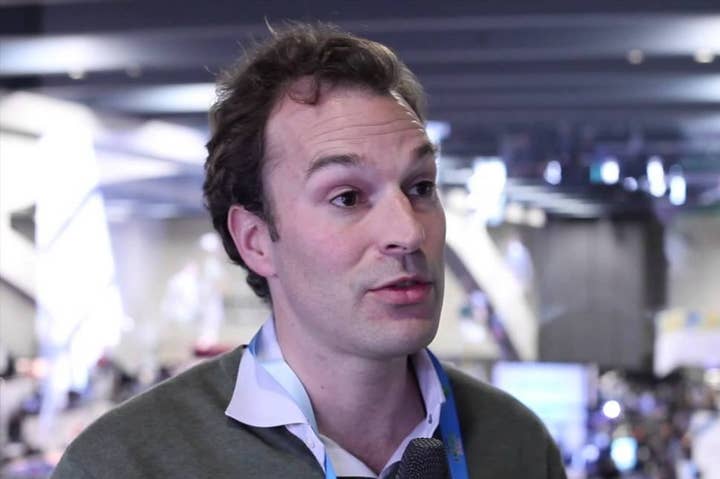Gameloft pushing quality over quantity
Baudouin Corman believes "fewer, bigger, better" approach can work in free-to-play mobile space now
The "fewer, bigger, better" approach to game development is taking hold in the mobile space. Speaking with GamesIndustry International at E3 last month, Gameloft VP of publishing for the Americas Baudouin Corman said it's a trend his own company has been adapting to of late.
"That's our case, and the case of a lot of competitors," Corman said. "We used to launch 30 games on smartphones on tablets [annually]. This year we'll launch 12 to 14 games, but we didn't reduce the number of developers, so the numbers speak for themselves. We develop less games, but with more investment on each game... We see some companies making a very good living with just one, two, or three games. So when you have one successful game, it can be so big, you don't need too many other titles."
It hasn't been easy to make the switch. While the mobile market as a whole is still expanding at a healthy clip, Gameloft's own growth has tapered off in recent quarters because of a paucity of new releases, Corman said. The publisher has been adjusting its typical development cycle from the 12-18 month range to an 18-24 month span, which has created some gaps in the release schedule.
"Things are changing so fast that what's clear today could be different tomorrow. It would be easy to say premium is obviously done forever. But the truth is for now, free-to-play is dominating. Tomorrow, who knows?"
There are a number of market forces pushing mobile developers in this direction, Corman said. First, the magnitude of a mobile market with billions of smartphone users is such that a successful game can justify much larger investments. Second, with an abundance of new competitors flooding the mobile market, having products of the utmost quality is imperative for them to stand out from the crowd. Finally, Corman said the industry's transition to free-to-play as a dominant business model has extended the lifespan of successful games, making the return on hits similarly bigger and better.
That free-to-play shift can be seen clearly in Gameloft's release schedule. While some licensed Gameloft titles (like movie tie-ins for Captain America and The Amazing Spider-Man) are still premium priced apps, Corman said those are mostly in the back catalog, with the company "very, very focused" on free-to-play games now.
"I'm not saying we'll never do premium, but when we look at the opportunities and how much we can invest in a game, the opportunities are much bigger with a free-to-play game than a premium game today," Corman said. "These are the dynamics of the market... Things are changing so fast that what's clear today could be different tomorrow. It would be easy to say premium is obviously done forever. But the truth is for now, free-to-play is dominating. Tomorrow, who knows?"
Another focus of Corman's has been the Latin American market. Gameloft has been there since 2005, and it already accounts for 20 percent of the company's total revenue, but it's undergoing a transformation that could see that number change significantly.
"This market is really switching from feature phones to smartphones very fast," Corman said. "It started like 12 months ago, and few companies working in South America were expecting the switch to be that fast."
Corman chalked the transition up to an abundance of low-end and mid-range Android smartphones releasing into the market. The switchover presents some challenges (Corman said there's still some "plumbing" missing from the smartphone ecosystem compared to the carrier billing Gameloft relied on with feature phones in the region), but the potential for growth is tremendous.
"If we just look at the business we were doing on feature phones, there's an appetite for mobile gaming," Corman said. "When we look at the revenue as a percentage of [users'] disposable income, actually people are spending more in mobile entertainment (games, music, etc.) and mobile equipment than in the US. It's much higher...There are opportunities in this market because people are spending, as long as we have a way to let them spend."

